5 most common herb garden mistakes – how to avoid them according to a gardening expert
Gardening expert Kate Turner shares the most common herb garden mistakes we're all making when growing our own at home
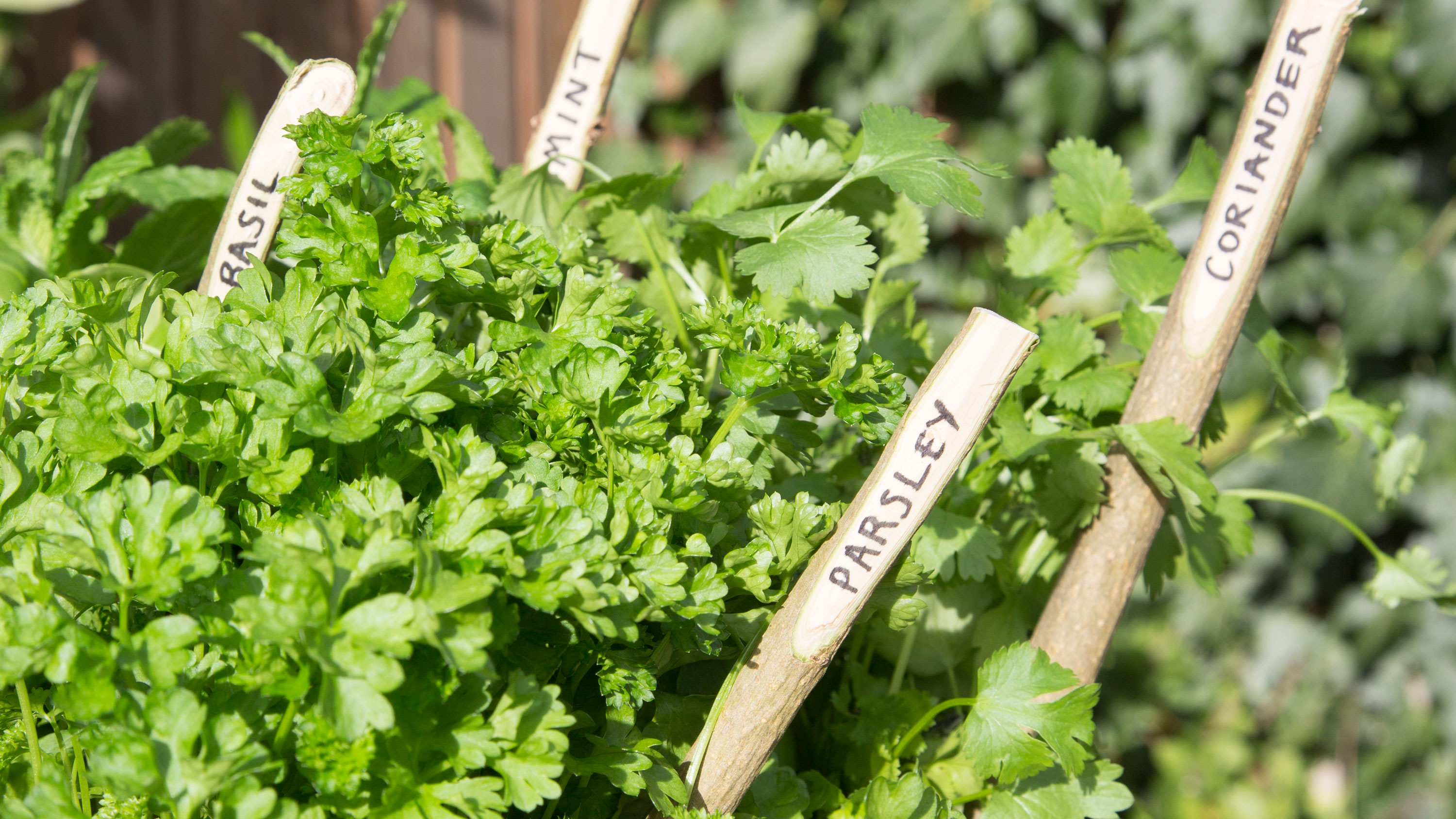

For many gardeners how to create a herb garden is where many of us start when growing our own produce at home. While looking after these scented plants might seem simple enough, lots of us fall victim to common herb garden mistakes.
To avoid yours turning into a tangle of shriveled greenery we asked gardening guru Kate Turner for advice. Kate has shared her gardening knowledge on ITV's Love Your Garden, BBC's Garden Rescue and recently been rescuing plants in the Miracle-Gro Plant Clinic appointments.
It is fair to say she knows a thing or two about getting your rosemary to flourish, and your dill to survive the year. Read on for the five most common herb garden mistakes, and Kate's tips for avoiding them.
5 most common herb garden mistakes
1. Planting all your herbs together
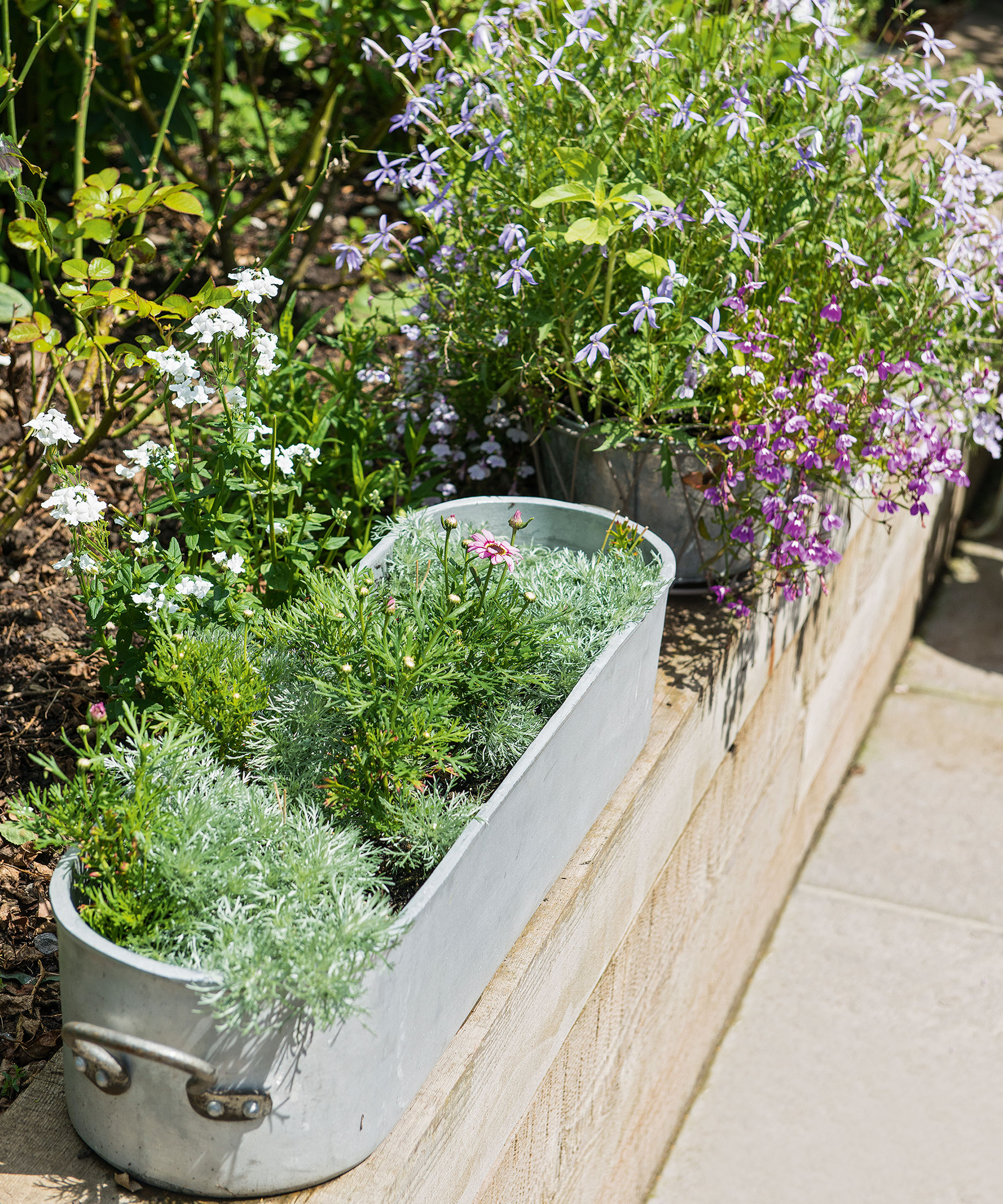
When planting up a herb garden it is tempting to group all your favorite herbs together into one planter. Even if you are putting them into separate pots many of us opt to group them together on one stand. However, according to Kate, this is a big no-no.
'You want to divide the herbs up by their different types. Lavender, sage, oregano, thyme are all Mediterranean herbs, and they can be planted together,' Kate says.
'Basil needs a bit of sun, but I would put that in a separate pot to lavender. Parsley, dill, and chives can tolerate a lot more shade, but don't grow them with lavender, rosemary, and thyme. They can go in the shadier corner, and they'll be fine.'
If you're not sure what conditions your favorite herbs prefer, we have plenty of growing guides including how to grow thyme on our Grow Your Own section.
2. Placing Mediterranean herbs in the shade
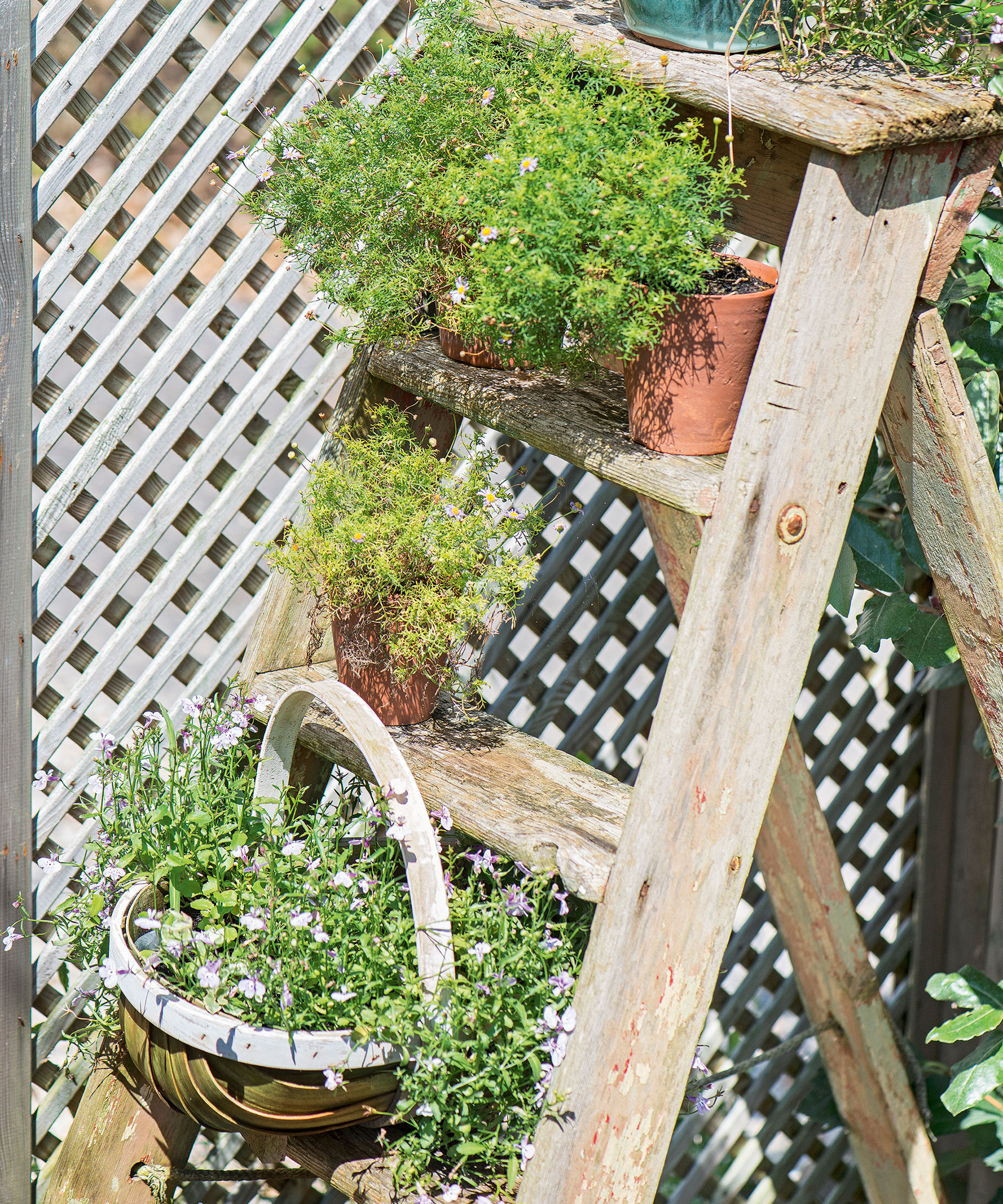
If you want your rosemary and sage to grow well it needs to be placed in a sunny spot. It might survive in a shady spot with the other herbs, but to achieve the tastiest herbs possible they need sun.
'Though these herbs will survive in a shady spot, they will need some sun because this helps release the essential oils we use in our cooking,' explains Kate. 'If they're only getting a bit of sun, then they're not going to smell as good, but they will still survive.'
3. Not cutting them regularly
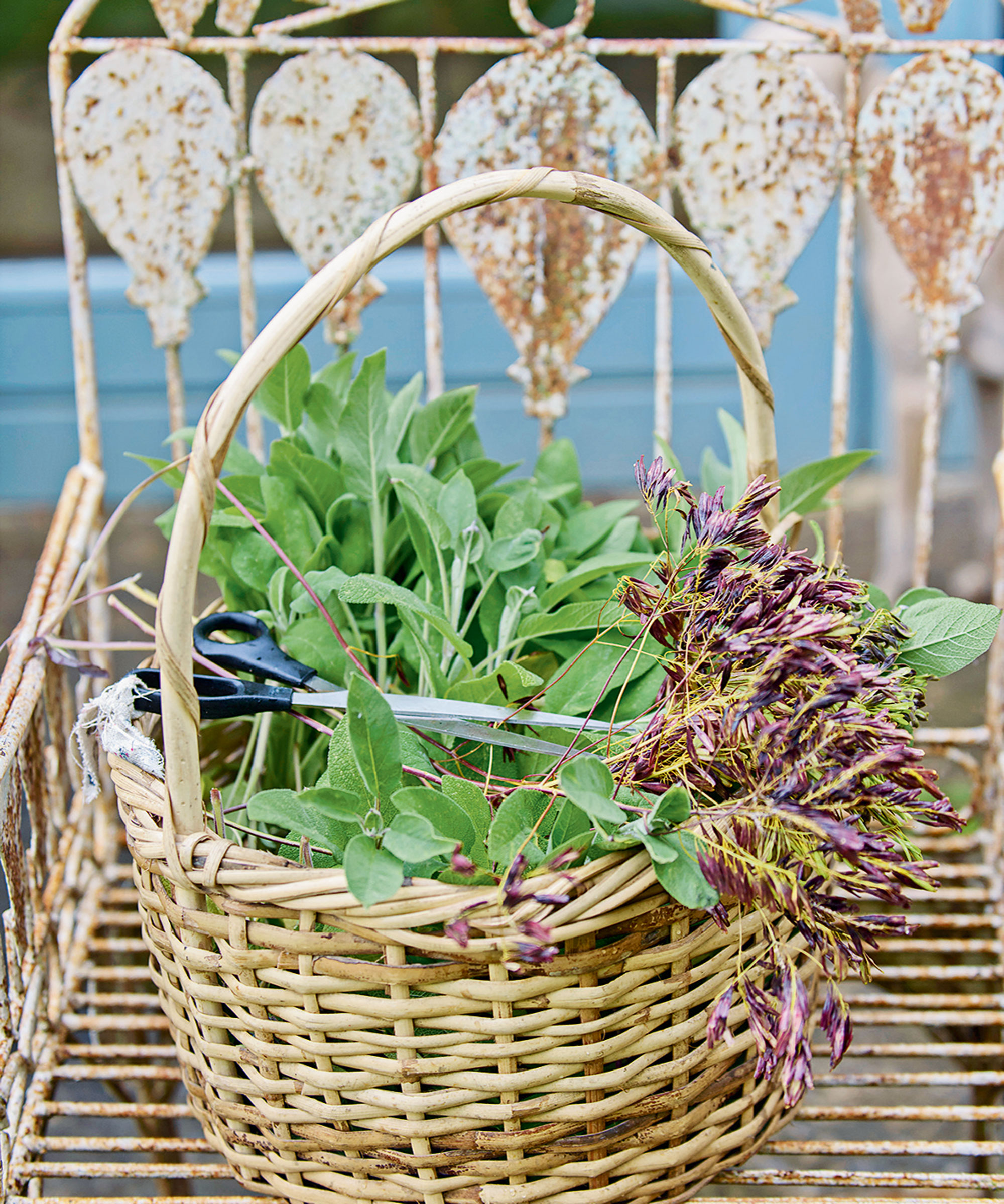
When you've spent so long nurturing your herb garden, we can understand why you might be reluctant to start cutting away at it. But remember the herbs are there to be used! Plus picking them regularly will actually help them flourish.
'The thing with herbs is to remember to keep cutting them. If you're not going to use the trims for cooking, you can freeze them, or put them in ice cubes – just keep them picked because that helps the plant retain its shape,' says Kate.
'Once the herbs get bigger, you should cut just below the leaf node and then put them in water. For example, with something like basil, you can put six stems into a jam jar of water, and they will grow roots. Once the roots are bigger, you can put them in soil, and you'll have a new plant for free.'
4. Soil condition
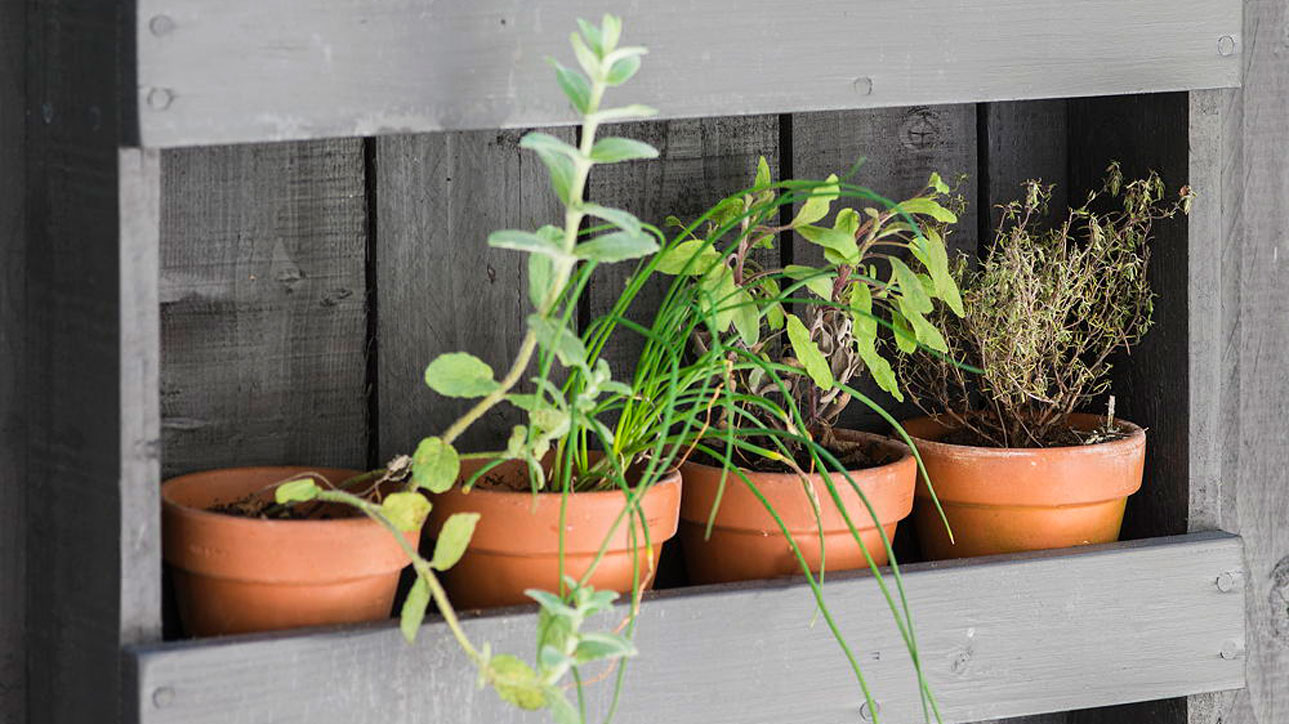
In the same way that not all herbs need the same amount of light, different herbs benefit from different types of soil.
'Your herbs need a good draining soil, so you must add some grit into your soil. If you haven't got any, you can buy some horticultural grit from a garden center and add that to your plant and soil. You need to make sure it isn't too wet,' Kate explains.
However, the amount of drainage your herbs need, depends on the amount of light they require.
'The thyme and the lavender should go in the sunniest spot possible, so you need to add some grit if you have any compost. The parsley and the chives don't need as much drainage – they're going to be a bit more moist,' Kate explains.
5. Forgetting to water
Not watering is one of the biggest mistakes when starting a herb garden. From thyme to parsley, in your herb garden's first season Kate explains that they all need careful watering.
'You must keep watering throughout the first season,' says Kate. 'Herbs are often labeled as 'drought-tolerant,' but nothing is drought tolerant until the roots have actually grown into that soil. Give it one season to keep up with your watering – people often forget that.'
For more advice on getting your own herb garden off to a flying start explore our guides on how to grow rosemary and how to grow parsley.
Don't be caught out by any of these common mistakes.
Rebecca has worked as a homes and interiors journalist for over four years, and is currently the Deputy Editor on Ideal Home online. Previously, she was the News Editor across the Future homes and gardens brands, including Gardeningetc.com. She lives in a rented flat in South London where she makes the most of window boxes to create small container gardens. Inside she has a jungle of houseplants in nearly every room which she does her best to keep up with regular watering and repotting.
